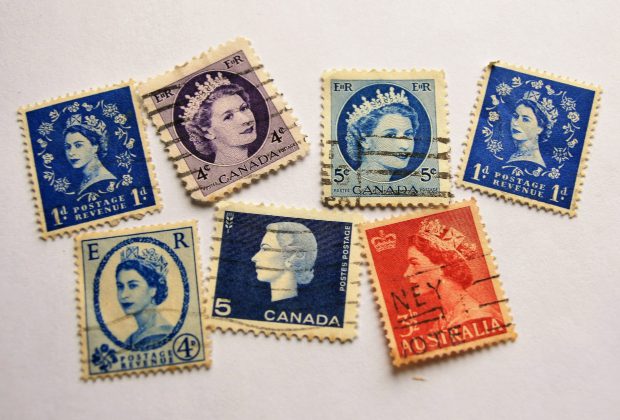Tim Cornwell
*Articles reflect the views of the author and or those quoted and do not necessarily represent the views of CCBC or the CCBC Connection.
On Sept. 8, 2022, Buckingham Palace announced the unfortunate demise of Queen Elizabeth II. The queen had passed away at her summer residence in Balmoral Castle surrounded by members of the British royal family who had rushed to be by her side when her health was reported to be deteriorating. As expected, the news elicited reactions of grief and loss from most people in Europe.
However, news regarding her death also elicited celebration from many people in Africa, Asia and some parts of Europe, especially, in countries whose people had been oppressed by British colonial rule. The varied reactions regarding the death of Queen Elizabeth II portray the current existence of a contemporary society in present times where any and all opinions regarding a matter, should be allowed.
Many of the controversial reactions to the queen’s death were shared on social media through sites such as Tik Tok, Facebook and Twitter. Those opposed to the negative reactions were quick to share their opinions, arguing that ridicule and celebration over the Queen’s death was a portrayal of blatant disrespect and apathy. Uju Anya, an associate professor at Pittsburgh University and an anti-racist teacher tweeted that people should not expect to express anything other than disdain for the queen as she was in charge of a monarchy that caused dire consequences for her family. In her additional tweets, she expressed her hope that the queen’s death was "excruciating." This tweet was taken down by Twitter shortly after it was posted after it attracted numerous complaints from people who were opposed to her view.
Jeff Bezos, the CEO of Amazon, called the professor out for her insolence, arguing that her statement did not reflect her responsibility as someone who was expected to educate others. This view was supported by other Twitter users who deemed it uncouth to speak about a dead person with such contempt. Most people argued that respecting individuals at a period of loss was simply a matter of common decency and talks about colonization were inappropriate at the time.
Further, social media users began a petition to get her fired from her position as a professor by terming her tweets as egregious behavior that promotes systemic racism and discrimination. Others considered the negative reactions as seeking attention from a tragedy without regard for the fact that The Queen, despite being a public figure, was someone’s close family member.
The critics of people who celebrated the queen’s death believe that proper protocol whenever a person died required the accordance of respect and empathy, especially, when the dead person was an icon within the political world, regardless of the effect their regime had on people. However, it is a fact that the queen was the leader of a regime that colonized and trampled upon other democracies during colonial times. As such, I believe that Queen’s critics had the right not to share in the grief experienced by her supporters and admirers.
A good example of people who had the right to celebrate the death of Queen Elizabeth II was the South African Economic Freedom Fighters political party. The party released a statement declaring that they would not mourn the queen as her death served as a reminder of a tragic period for the South African country and the whole of Africa. The statement read in part “During her 70-year reign as queen, she had never acknowledged the atrocities that her family inflicted on the native people of their colonies when Britain invaded various parts of world.”
There were also groups of British and Europeans who were not so formal or mindful in their reactions with videos of Irish people chanting and celebrating the queen’s death going viral while others openly ridiculed her rule for the blatant disregard of the negative consequences that British rule had on people living within their colonies. Trevor Noah, a South African comedian and host of the Daily Show argued that it is unfair to expect those who were oppressed under the crown to show respect for someone that did not show respect to them. Noah advised people to respect the personal views that different people had concerning the queen’s death.
Appreciating the rights of the queen’s critics to choose not to mourn her death is an appreciation of their individual perspectives regarding the crown. The Queen was revered as a symbol of a nation who had united the British people for centuries. However, in some other countries, The Queen was perceived to be a symbol of the colonialists who robbed countries of their resources while imposing their own culture and religion on natives. In most countries in Africa and Asia, the effects of the British colonial rule are still felt as their citizens struggle to establish their democracies to match up with the levels of developed entities such as the United Kingdom. The fact that those struggles can still be felt to date would make it difficult for the citizens of such countries to mourn the death of the head of an institution that represents the cause of their troubles.
Additionally, we cannot claim to be diverse in our experiences and histories and yet expect our reactions to different events to be the same. Worse yet, telling people living in countries that were colonized how they should feel about the death of their colonizer is akin to propagating the colonization legacy of the colonizer. The fact that the colonized rose above the colonial times and have democracies of their own should be matched with the freedom to choose how to react to emerging issues happening around them.
Further, the choice not to mourn the death of The Queen is not simply reserved for the citizens of the countries that were colonized by Britain. Instead, the choice reserved for anyone who potentially chooses not to mourn her. Notably, there are people who knew The Queen personally who deeply felt her loss. However, there are those that fall within the same bracket that will not perceive her death as a loss and that should be okay. Choosing to celebrate her death or failing to mourn her should not be considered as disrespect to the dead but rather the freedom to express one’s opinion. Granted, this should be done with decorum that should not entertain name calling or insults. However, putting The Queen’s legacy into context would definitely justify the positions of some people who may not feel grief following her death.
Finally, the argument that it is inappropriate to bring up issues surrounding the negative consequences of colonialism begs the question "when would be the right time?" Those mourning her death allude to the good deeds and interactions they have had with her during her regime. Therefore, why should it be considered wrong for people who do not have a positive view of her legacy to reflect on her bad deeds?
The death of Queen Elizabeth II is a significant event in history of the whole world. She was a monarch who ruled for 70 years and who had a significant political influence in the entire world. The aftermath of her death raised numerous reactions ranging from immense grief and mourning to celebration and ridicule. The opponents of those who celebrated her death term it as a disrespectful act. Consequently, the opponents urge everyone to recognize the stature of the queen and to treat her death accordingly. However, the choice not to grieve The Queen’s death with the rest of the world should not be considered to be a failure to recognize her stature. Instead it should be considered to be a choice to recognize and acknowledge what her stature represented throughout the world. In the words of Trevor Noah, "our relationship with somebody may not be the relationship that other people had with that person, and that is fine."














